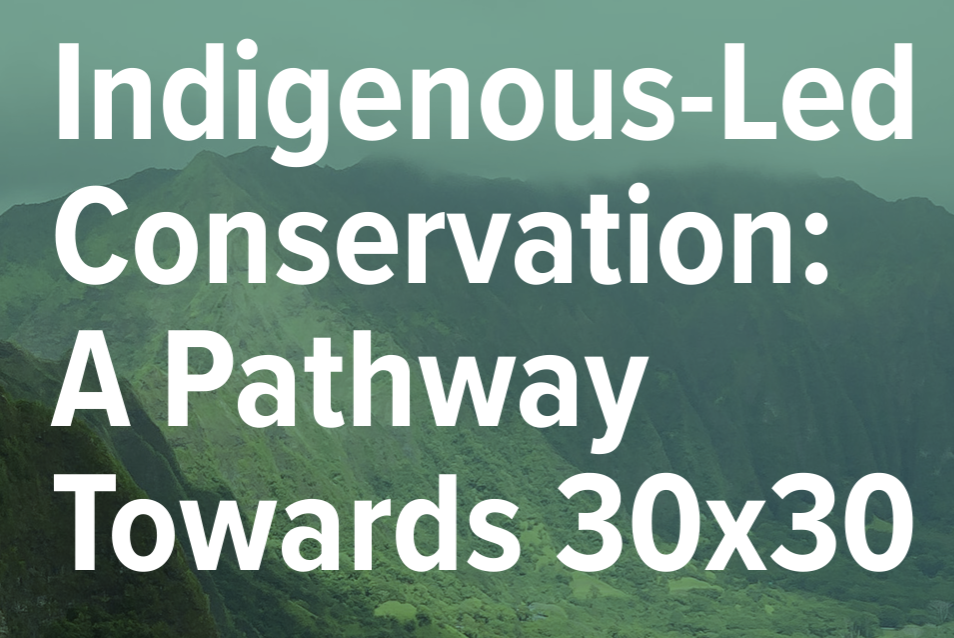An Indigenous Vision of a Pathway to 30 by 30: Our Cultural Advantage
As the state of Vermont begins to engage its own commitment to the global “30 X 30” land conservation initiative in response to human-poor behavior-caused planetary degradation, through the passage last year (2023) of Act 59 (H.126), an Indigenous coalition has coalesced to add necessary - and heretofore missing - perspectives. Randy Kritkausky has drafted the following explanatory statement of our vision - Atowi is joining this effort, as foundational to vital relationships in and with the Places that we dwell.
*****
Vermont’s Indigenous Peoples have historical, cultural and legal connections with the land that are unique to Native American populations in the Northeast. Unlike Indigenous Peoples of the Pacific Northwest in both the USA and Canada, who have been able to continually occupy and administer their ancestral territories, and who have legal claims to these territories that extend to government recognition of sovereignty, in the Northeast United States such a relationship has been under assault for five centuries of aggressive colonization. Consequently, models of Indigenous involvement in bold co-management conservation initiatives such as 30 by 30 rematriation agreements that work on the western edge of our continent will not easily transfer to Vermont and much of New England.
Our legacy of historical challenges and our very recent successful attempts to resurrect and revive our cultures, our language, and our ceremonies all put us in a unique position to contribute a critical piece of the puzzle needed to make 30 by 30 a reality. Because of our struggles and accomplishments surrounding revival of our societies, we have several decades of lead time on mapping a pathway to meaningful reconnections with Mother Earth that non-Indigenous peoples in the mainstream are also seeking and must walk if we are all to turn around our relationship with Mother Earth and act in a manner that will make stewardship more than an aspiration.
Indigenous Peoples in the Northeast are not exotic intimidating out-of-reach romanticized models of living in a pre-contact idyllic relationship with Nature. We are sometimes searching for and finding insights surrounding “biophilia” just like so many in the mainstream. Our advantage in this cultural revitalization process is that we have alternative traditions to draw upon, traditions that we have kept among ourselves and nurtured in our hearts.
Legislation on biodiversity protection is welcome. But we are not going to make real progress if our world view, our mainstream cultural concept of nature domination, is not replaced by an ethic of humility, respect, and caring for our other-than-human kin (i.e. Indigenous stewardship ethics). In other words, a critical and necessary ingredient for getting to 30 by 30 is a spiritual transformation.
There is real hunger for such a shift in thinking and acting. Not a day goes by that I am not asked to comment on or speak about my Indigenous heritage, its views on nature, my experiences living in daily intimate connections with forest kin, and how this world view might be mainstreamed. There is a widespread recognition that business as usual has gotten us into a massive ecological crisis and that no clever business solutions and no economic inventions or financial instruments are going to get us out of our situation. For some this recognition is based in scientific reports. For many it is based on intuition and daily direct observation of the realities enveloping us (e.g., altered weather patterns, wildfire smoke from Canada, diseases related to the warming cllimate).
Indigenous Peoples are not exempt from the stress and fears associated with ecological crises. However, we have a spiritual outlook that allows us to feel the hopeful embrace of Mother Earth who is continually extending a collaborative healing hand and urging us to practice the moral precepts of our Turtle Island Creation Story.
Making Indigenous Peoples the leading edge of telling the story about how to get to 30 by 30 can offer hope, inspiration, and guidance. Merely inventorying existing programs and producing new “plans” will quickly discourage a population grown cynical about ambitious grand schemes that never materialize.
30 by 30 in Vermont will rise or fall depending on its ability to project a credible sense of a fresh vision. That vision is that all of us can, and should become, indigenous to place. Let us show how to do this.
Randy Kritkausky is an enrolled Citizen Potawatomi Nation tribal member living in Whiting Vermont. He is the co-founder of ECOLOGIA, an international environmental organization, and author of Without Reservation: Awakening to Native American Spirituality and the Ways of Our Ancestors.
